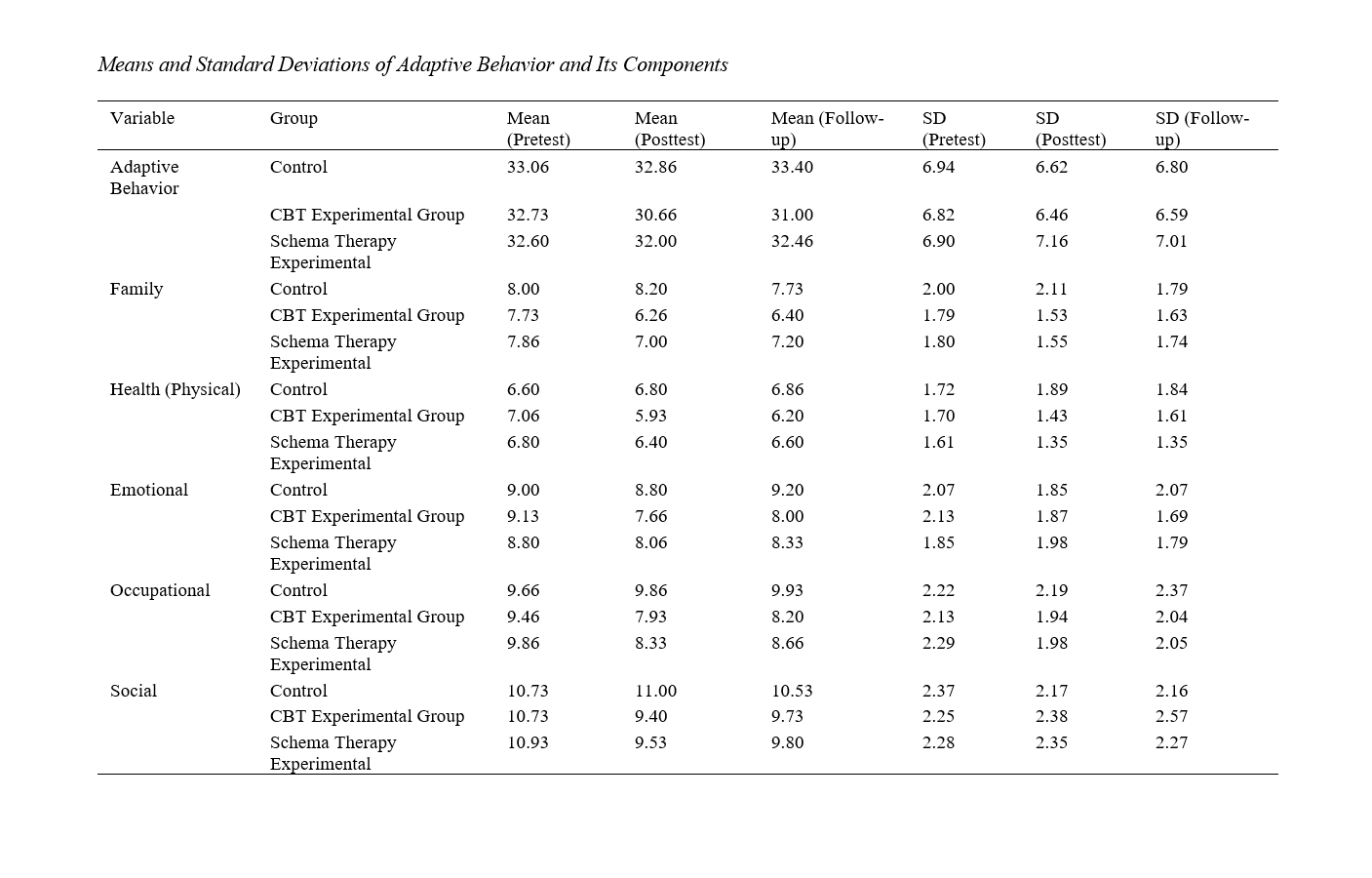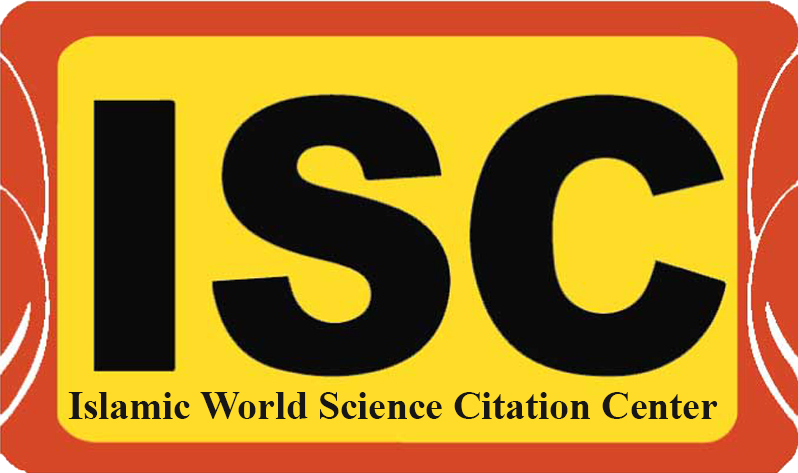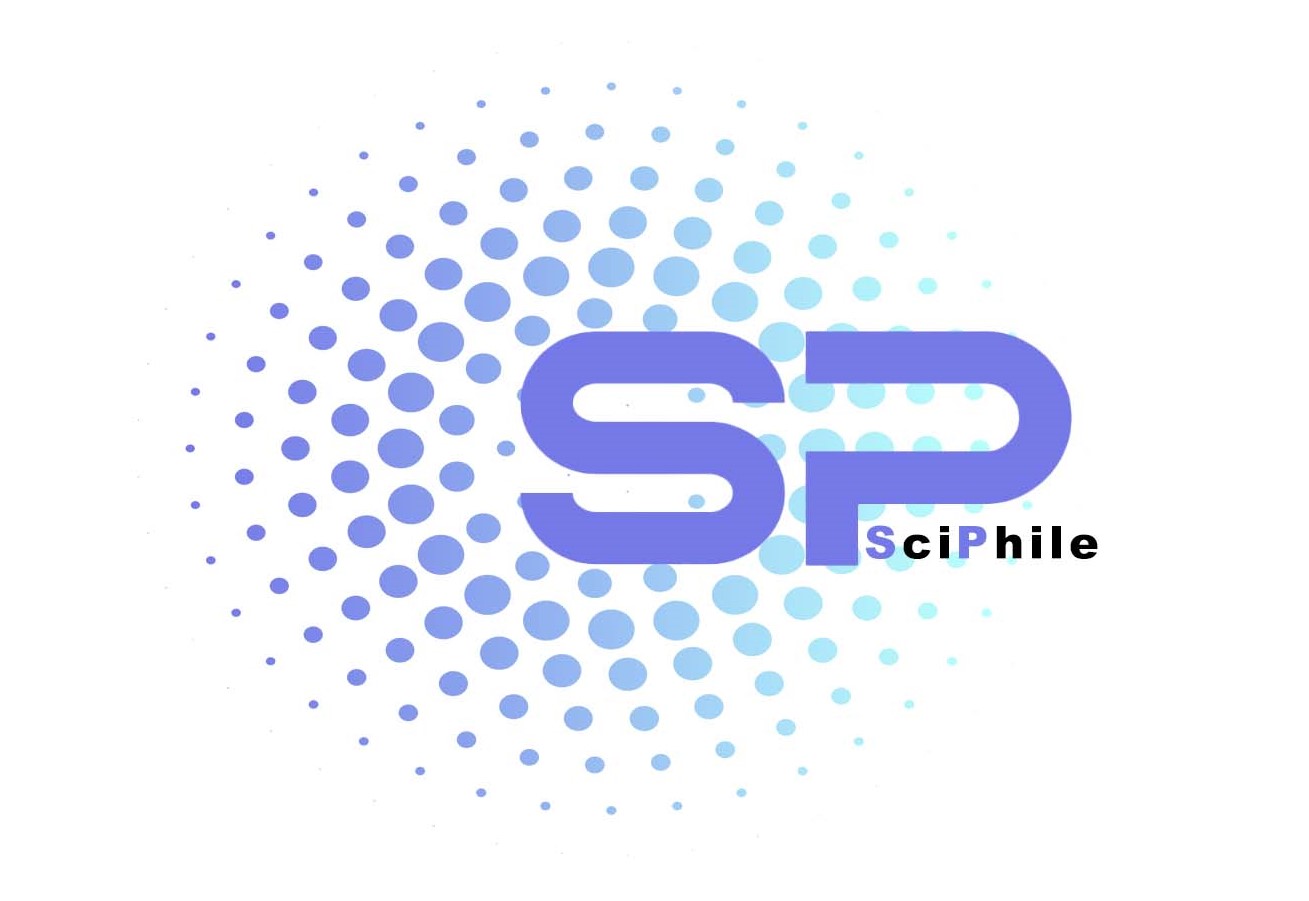Comparison of the Effectiveness of Cognitive-Behavioral Therapy and Schema Therapy on Improving Adaptive Behavior in Individuals with Substance Use Disorder
Keywords:
Cognitive-Behavioral Therapy, Schema Therapy, Adaptive BehaviorAbstract
Objective: The objective of this study was to compare the effectiveness of Cognitive-Behavioral Therapy (CBT) and Schema Therapy in improving adaptive behavior among individuals with substance use disorder.
Methods and Materials: This quasi-experimental study employed a pretest-posttest-follow-up design with a control group. The study sample consisted of 45 individuals with substance use disorders, who were randomly assigned to three groups: a CBT group, a Schema Therapy group, and a control group. Participants underwent 12 sessions of CBT or 15 sessions of Schema Therapy. Data were collected using the Bell Adjustment Inventory, which assessed various components of adaptive behavior, including family, health (physical), emotional, occupational, and social aspects. Data analysis was conducted using univariate analysis of covariance (ANCOVA) and Bonferroni post-hoc tests to determine the differences between groups at posttest and follow-up stages.
Findings: The results demonstrated that CBT significantly improved adaptive behavior compared to the control group at both the posttest and follow-up stages, with a 1.79-point increase in the posttest and a 2.05-point increase in the follow-up. Schema Therapy did not show a significant difference compared to the control group in either stage. Additionally, CBT was found to be more effective than Schema Therapy in improving adaptive behavior, with a 1.57-point increase at the posttest and a 1.81-point increase at the follow-up. The improvement was significant across various components, including family, emotional, and occupational aspects, particularly in the CBT group.
Conclusion: Cognitive-Behavioral Therapy was more effective than Schema Therapy in enhancing adaptive behavior in individuals with substance use disorders. The study suggests that CBT could be a valuable intervention for improving adaptive behaviors and reducing negative emotional responses in this population.
Downloads

Downloads
Additional Files
Published
Submitted
Revised
Accepted
Issue
Section
License
Copyright (c) 2024 Samaneh Salamian (Author); Mostafa Heidari (Corresponding Author); Asghar Norouzi (Author)

This work is licensed under a Creative Commons Attribution-NonCommercial 4.0 International License.

























